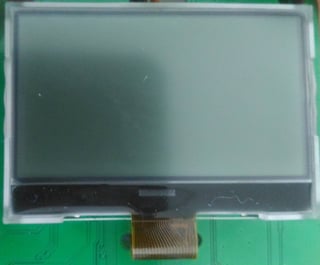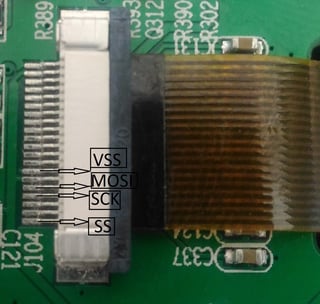I'm trying to read a graphic LCD, it seems to have 128 x 64 dots. It communicates with an ARM STM32F103 via SPI. I intercepted the communication between the LCD module and MCU, and decoded part of the communication.
I would like to know: How can I discover the model of the LCD controller that this LCD module uses?
I need to read it, so, I need to know which controller it uses and which pins are available in the flat cable connector.
Does someone have a tip, or any advice?
Here are some pictures of it.
(click for larger images)


